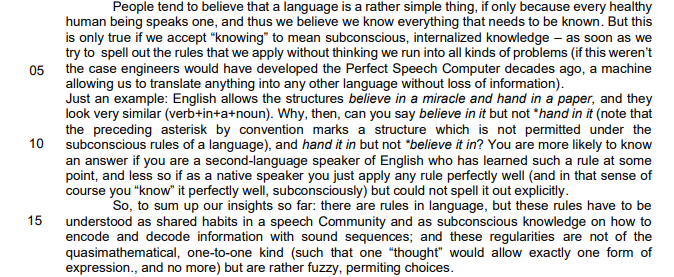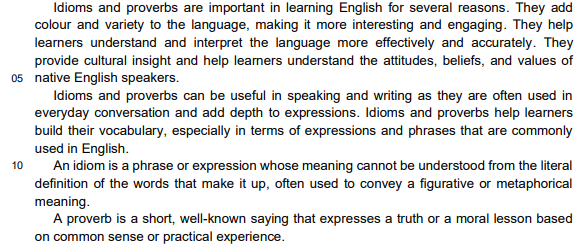Questões de Concurso
Sobre inglês
Foram encontradas 17.876 questões
Resolva questões gratuitamente!
Junte-se a mais de 4 milhões de concurseiros!
Text 06 – Levels of Language (Variation).

From: English Around the World (Cambridge Introductions to the English Language). P. 19 (topic 2.2) Kindle Book. At https://ler.amazon.com.br/?asin=B088TFZHRD&ref_=kwl_kr_iv_rec_1.
Text 06 – Levels of Language (Variation).

From: English Around the World (Cambridge Introductions to the English Language). P. 19 (topic 2.2) Kindle Book. At https://ler.amazon.com.br/?asin=B088TFZHRD&ref_=kwl_kr_iv_rec_1.
Text 03 – Idioms and proverbs

Text 03 – Idioms and proverbs

Text 03 – Idioms and proverbs

From what is briefly explained in text 03, the image below (Picture 01) represents:

(Picture 01 – Illustrastion done by students in a language classroom).
Text 03 – Idioms and proverbs


